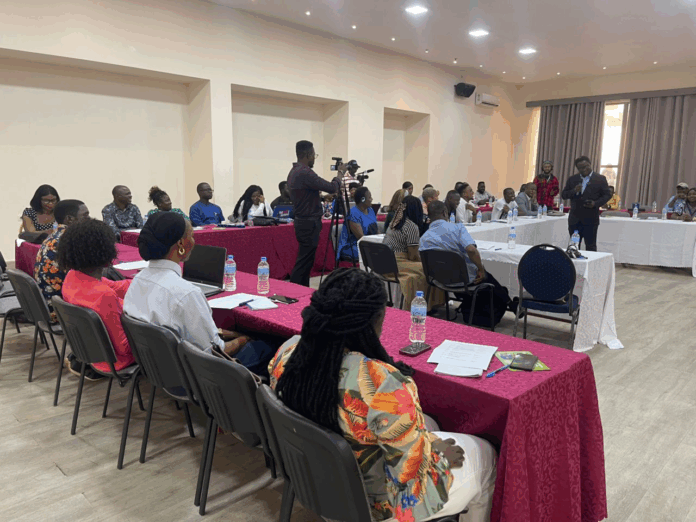By The Prowess
The Media Reform Coordinating Group (MRCG), in collaboration with the Paradigm Initiative, on Monday hosted a one-day training workshop dubbed the Digital Rights Academy for Journalists on Monday 23 June, 2025, at the Brookfields Hotel in Freetown. The event brought together media professionals to explore the intersection of digital rights, press freedom, and online safety in an increasingly digital media landscape.
In his opening address, Dr. Francis Sowa, National Coordinator of MRCG, underscored the critical importance of digital rights for journalists. He emphasized the need for media practitioners to understand the inherent risks in digital communication, including data breaches, insecure platforms, and poor encryption practices.
“The session aims to address key issues such as delivering secure communication, protecting data, and understanding the legal landscape surrounding digital rights,” said Dr. Sowa. He described the Academy as a collaborative platform where journalists could develop practical resolutions and community-driven strategies for safeguarding their rights online.
Dr. Sowa also acknowledged the role of the Sierra Leone Parliament in supporting the expansion of the initiative, noting that the program is built on partnerships and collective action. “We believe in working with partners rather than working alone,” he added.
Representing the Paradigm Initiative, Ms. Khajidah El-Usman, the organization’s Regional Lead for West Africa, welcomed the opportunity to engage in Sierra Leone, one of the few English-speaking countries in the region where the Initiative is expanding its footprint. She highlighted the Paradigm Initiative’s Pan-African mission to promote digital inclusion and rights across the continent.
“Internet access and freedom of expression are fundamental human rights, not privileges, our mission is to support communities, organizations, and governments in creating a safe, inclusive, and respectful digital space.”
El-Usman noted that while the Digital Rights Academy is tailored for journalists, similar programs also exist for lawyers, civil society actors, and other stakeholders. She emphasized the pivotal role of the media in supporting democracy, informing citizens, and holding public and private power to account.
The training tackled critical digital threats faced by journalists today, including surveillance, online harassment, censorship, and breaches of data privacy. El-Usman stressed that the Academy aimed to empower journalists with knowledge and practical strategies to safeguard both their personal and professional digital environments.
Digital security expert Binty Mansaray facilitated a session on digital safety and secure communication. Her training focused on how journalists can stay safe both online and offline, create stronger passwords, and protect their digital accounts from unauthorized access and cyberattacks.
The event culminated in the drafting of a joint communiqué by participants, outlining key demands for safeguarding press freedom and digital rights in Sierra Leone. The document emphasized the growing importance of digital rights in the country’s evolving media landscape and highlighted both the opportunities and risks that come with digital transformation.
Participants commended the government of Sierra Leone for its efforts to expand ICT access and promote information availability. However, the communiqué raised concerns about the growing threats journalists face, particularly in the form of online harassment, trolling, and digital surveillance, which disproportionately affect female journalists.
The statement called attention to the inadequacy of current data protection and digital security measures, which leave journalists and their sources vulnerable to surveillance and retaliation. It also warned that the absence of a clear legal framework for online expression and content moderation could lead to arbitrary censorship and the suppression of critical voices.
The communiqué urged the government to prioritize the protection of media freedom and digital rights, ensuring that journalists can work safely and freely in the digital space.
Participants hailed the event as a timely and essential intervention, fostering dialogue, collaboration, and tangible outcomes to strengthen digital rights awareness and resilience within Sierra Leone’s media community.


